By Dalia Jakubauskas on January 6, 2020 – Originally posted on MusicFestNews.com
Supernovas, auroras, lightning, sunsets, wind, water, waves — forces of nature all. And then there’s Nikki Glaspie – the alpha and omega of positivity who’s on a mission to bring light and love to every dark corner of the world through the power of music. A prodigious drummer, bandleader, and fixture on the jam and music scenes, Glaspie’s current vehicle for change is The Nth Power, a soul-drenched, funk-inflected band she inhabits alongside superb vocalist and guitarist Nick Cassarino and formidable bassist Nate Edgar. She is also the subject of our fifth installment about women in jam whose stories are often overlooked in a male-dominated industry, where feminine power is slowly making inroads. To see the women we’ve spotlighted so far, click here.
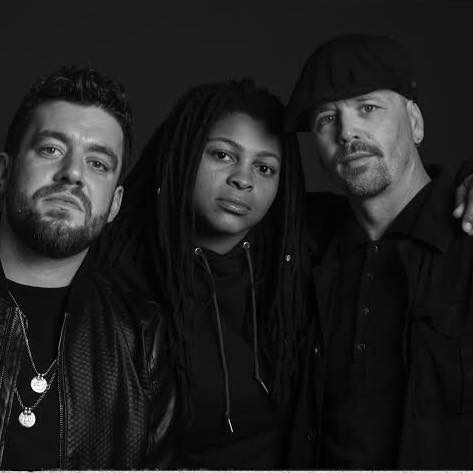
Glaspie is both pioneer and guardian of the rich musical traditions that are foundational to a brilliant career that has crisscrossed genres and continents. Barely into her fourth decade on the planet, Glaspie possesses an extensive resume that includes stints as drummer with international headliners such as SUGA MAMMA, Beyonce’s all-female backup band; Maceo Parker; Me’Shell N’dege Ocello; and many more.
Born in Fredericksburg, Virginia, but spending many of her formative years in Maryland and Raleigh, North Carolina, Glaspie says she was literally born to play drums. “Yeah. Like I came out of the womb, and it was like, DRUMS!” she said. “And my dad always said to me that I’d pick up on other instruments. I had a trumpet under my bed. I played Sousaphone in middle school; I played saxophone. I played clarinet. But he said to me you were always obsessed with the drums.”
Like so many deeply soulful artists, Glaspie got her start in the church, where she recalls being a toddler fascinated with musicians there. “I started when I was two years old,” she said “I remember we used to go to different churches and I would just sit and watch the drummers. Like that’s all I did. I tried to imitate their movements.”
The daughter and granddaughter of Southern black ministers, Glaspie first experienced the power of music in church. “That’s the first place that you understand the importance of music and the connection that it can make,” she recalled. “It’s the spirit. It’s understanding that there’s something else and not just us. I’m thankful for the background, because it definitely taught me how to connect with people’s spirits.”
She joined her mother’s church choir band by the tender age of eight and got her first paying gig at 15. “My grandmother, she had this thing called the North Carolina Gospel ministry, and she would go around to different churches and teach the choirs proper etiquette and how to worship,” she recalled. “So I would go with her – her and my mom, my uncle, my aunt. It was a family thing. They actually had a band a long time ago called The Melodic Sounds. My mom played keys, and both my aunts sang, one of my uncles played bass, and the other one played drums. I was part of that at eight or nine. So, I would play with them, too. They might have given me 20 bucks once.”
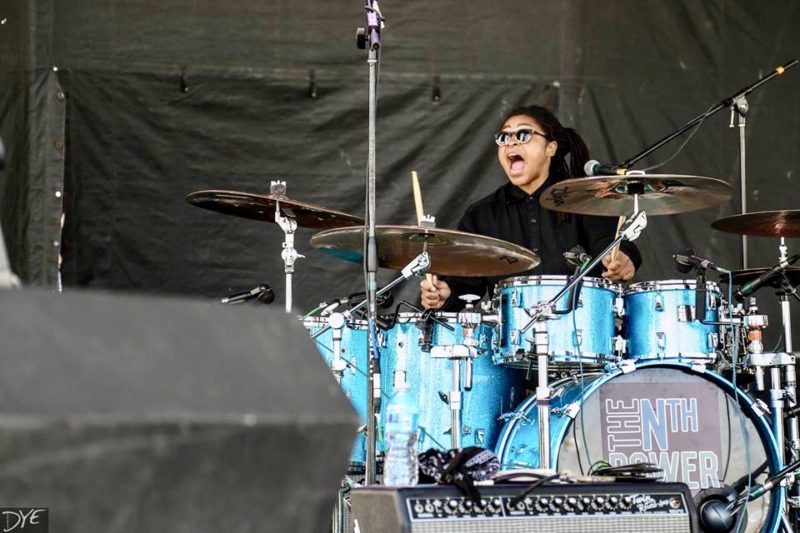
High School saw Glaspie venture further afield with her first tastes of secular music that included an introduction to rock, metal, funk, and R&B by her father, a music lover who consumed all sorts of genres. “He always listened to everything,” she said. “He introduced me to secular music. My parents got a divorce, and I went to hang out with him when I was 15. And he was like, ‘Don’t tell your mother.’ He played me Van Halen 1984, Eve6, Smashing Pumpkins, Rage Against the Machine, the O’Jays, and The Gap Band. When I heard ‘Hot for Teacher,’ I like freaked out. I was like, ‘What is this?’ And then I heard ‘Early in the Morning’ by The Gap Band, and I couldn’t believe what I heard. That was my exposure to secular music.”
By then, the fuse was lit for Glaspie, whose voracious appetite for musical exploration and enormous talent would lead her to Boston’s prestigious Berklee School of Music in 2000. There she’d build on an unmatched academic foundation, studying under legendary musicians and instructors like David Fiucznski, Kenwood Dennard, and Angelamia Bachemin, whom she calls a mother figure who informs her life to this day. Storied Cuban drummer Horacio “El Negro” Hernandez served as a guest instructor for at the school, an experience that shook her then starry-eyed self to her core.
“I went for Percussion Week,” she recalled,” and when I met him, I cried just because I was such a nerd. In high school, all our drum line would do is sit around and go to drummerworld.com, and it had all the drummers and videos and albums and stuff that they played on. So, I used to just watch everything. Like all of his videos and all that he ever did. When I saw him I said, ‘That’s the guy!’ He’s one of the greatest drummers ever that at that point I was completely obsessed with. I totally went fangirl on him.”

While Berklee provided Glaspie with a solid education, it was playing in Boston’s jazz and blues clubs where she sharpened her skills as a musician and performer, at clubs like the now-defunct Sophia’s and the legendary and still-going-strong Wally’s Jazz Cafe. It was at Wally’s where Glaspie connected with a wide range of artists, including instructors from Berklee, who taught her the ropes and gave her the chance to shine.
“I was like 18, but I would hang out with all the musicians,” she said. “There was this club called Sophia’s on Boyleston Street. It was like the Afro/Cuban/Latin club. And it was like a real club like people were in there dancing.
Berklee was definitely a great place, because there were so many international students. So when I went and hung out at Sophia’s, Columbians, Cubans people from Uruguay, Paraguay, they all hung out together. It was really cool to see all of them come together. I couldn’t speak any Spanish, but I would just hang out with them and listen to them speak Spanish.
Eventually, I started playing down there and sitting in, and Horacio came in the door one night when I played. And he was like, ‘Oh my God! You’re my Heart.’ And I was like, ‘Dude! You’re THE guy.’ It’s funny, because literally right after that is when I went down the rabbit hole of funk. I was obsessed with Afro/Cuban and Latin Jazz. That was the only thing I was playing. I was in a salsa band. And then I went into Wally’s one night, and it changed my life. That was it. It changed my course. That’s where I learned how to connect with an audience, perform and play. Play a real gig. So that was school. I probably learned more at Wally’s that at Berklee.”
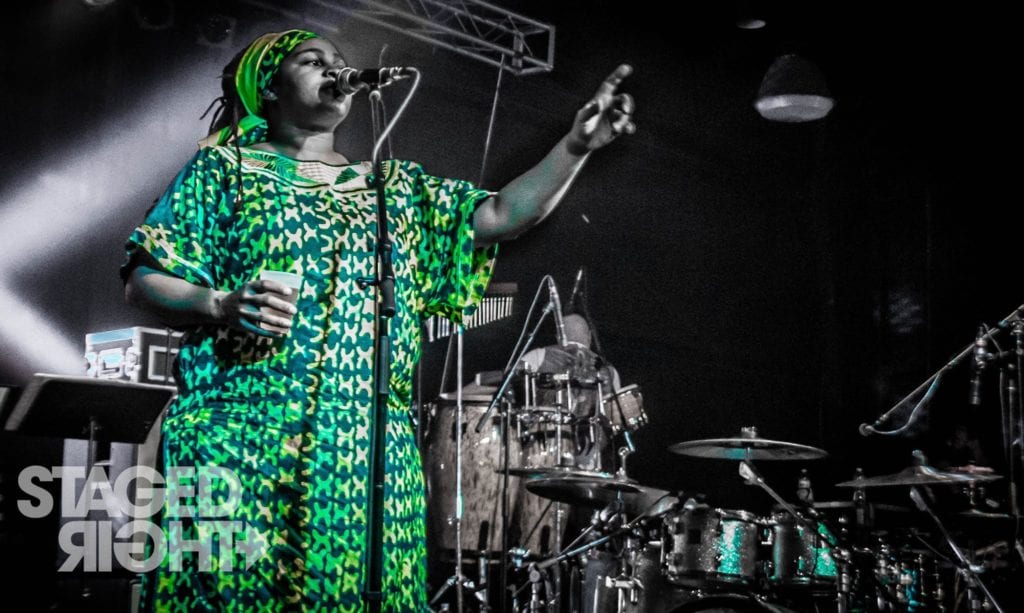
Not long after graduating, Glaspie relocated to New York City, where she began playing on the nascent jam scene with saxophonist and longtime Lettuce and Soulive collaborator Sam Kininger and bassist Aaron Bellamy, who is best known for his work with the Sam Kininger Band and Alan Evans’ PlayonBrother Band. An endorsement from renowned cymbal maker Zildjian soon followed, along with co-producing Adam Joseph’s debut R&B album How I Seem To Be in 2004. By 2006, contemporary R&B/rock guitarist Martin Luther enlisted her considerable talents for a tour to Europe and elsewhere.
While recognition and accolades poured in, the money did not. Any working musician will tell you that their lives are far from glamorous. Champagne and caviar dreams it’s not. Scraping by on $100 a gig, sleeping on stranger’s couches, and eating peanut butter and jelly sandwiches for weeks on end is more like it. Despite a steady stream of gigs, Glaspie found herself living n New York City and broke when an opportunity of a lifetime came knocking – the chance to audition for Queen B.
“I had 50 bucks in my pocket,” she said. “I had just moved to New York six months before that, and I had a gig that week during the week of the audition in Nantucket at The Chicken Box. Anybody that’s played there knows you’ve got to get on a ferry to go there. We had two nights and I was like, ‘Yo! I’m going to miss Monday night because I’ve got this audition’.”
“I wasn’t going to go to the audition because I thought it was a publicity stunt. You know, like, ‘We’ll just use this band for two months and then get the real band back.’ So, I wasn’t gonna go, and I had just 50 bucks. I need to work, I gotta eat. So, I though, alright. I’m just gonna go and see what happens. And I went, did the audition. But because I did I missed the other gig. I just hung out in my best friend’s apartment and ate peanut butter and jelly for a week. I did the audition on a Monday, and they called me on a Friday saying, ‘Congratulations! You’ve been selected to go to the next round. Show up at Sony Studios tomorrow.’”
“I’m like, this is so unrealistic. If anybody is a real working musician, you can’t go to an audition on a Saturday. Luckily, I wasn’t working, so I went to the audition, and it was eight hours on a Saturday. They had us rotating. They played us her (Beyonce’s) new single, and we had to learn it on the spot and play it. They kept doing different combinations of women trying to figure out who was going to be in the band. At the end of the day they said, ‘You guys gotta come back tomorrow, because we still don’t know.’ So we went back the next day, and it was another eight hours just pulling people in and out and switching. Then there was ten of us in the room, and they announced, ‘Congratulations! You’re the band!’”
“It was awesome because I called my dad. It was Father’s Day. I called my dad and I was like, ‘I got the gig!’”
“He’s like ‘No you didn’t!’”
“I was like, ‘No. I got the gig!’”
“He’s like, No you didn’t!’”
“And I was like, ‘Yeah! I got the gig! (imitates scream). I never heard him scream like that (laughs).”
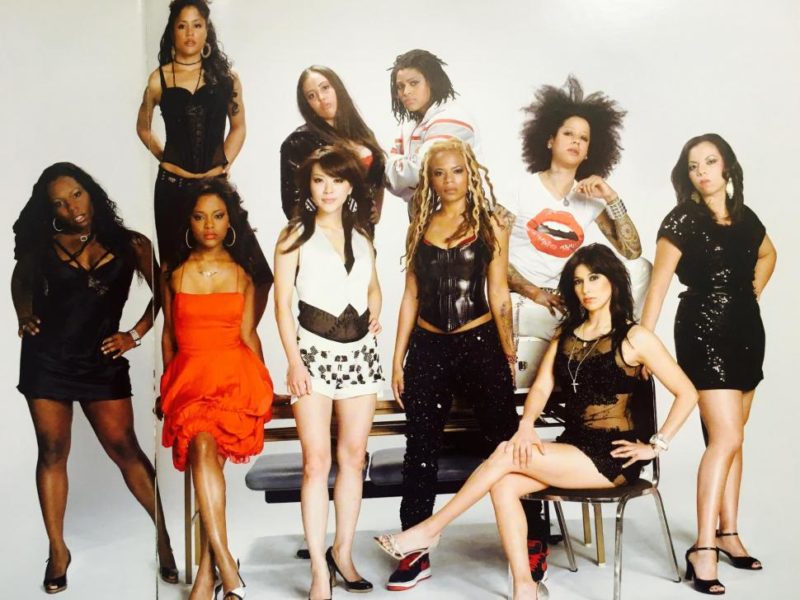
She would spend the next five years as the drummer for SUGGA MAMA, touring the world with Beyonce and learning what it means to be a performer, a leader, and a strong woman in a business that is not always welcoming to females. It meant putting in long, grueling hours at rehearsals until the band functioned like a well-oiled machine on cue.
“I learned so much,” Glaspie said. “I learned that performing is not playing. A lot of people get that confused or don’t even think of it in that way. You’re on a stage, so you have to perform. It’s definitely difficult when you’re behind a drum set. Try and translate that. I learned so much from (Beyonce). Her work ethic is unparalleled. We would not stop until we got it right. And then when we got it right, we’d do it again, and again, and again. She was just relentless. I learned a lot about production. I learned a lot about how to be a boss, how to lead people, how to explain to them your vision. I also learned that not everybody is going to see your vision. They’re not gonna get it all the time and how to try and deal with that.”
“But she had an amazing team. She was always involved from day one. There wasn’t anything that happened that she didn’t decide. It was really awesome being there and watching her work and being a part of it. We’d have really long days -12 to 18 hour rehearsals. A lot of it is just muscle memory. They wanted it so ingrained in us that we could be thinking about next week and it still be a product. It’s happening, and it’s at a level that they wanted it.”
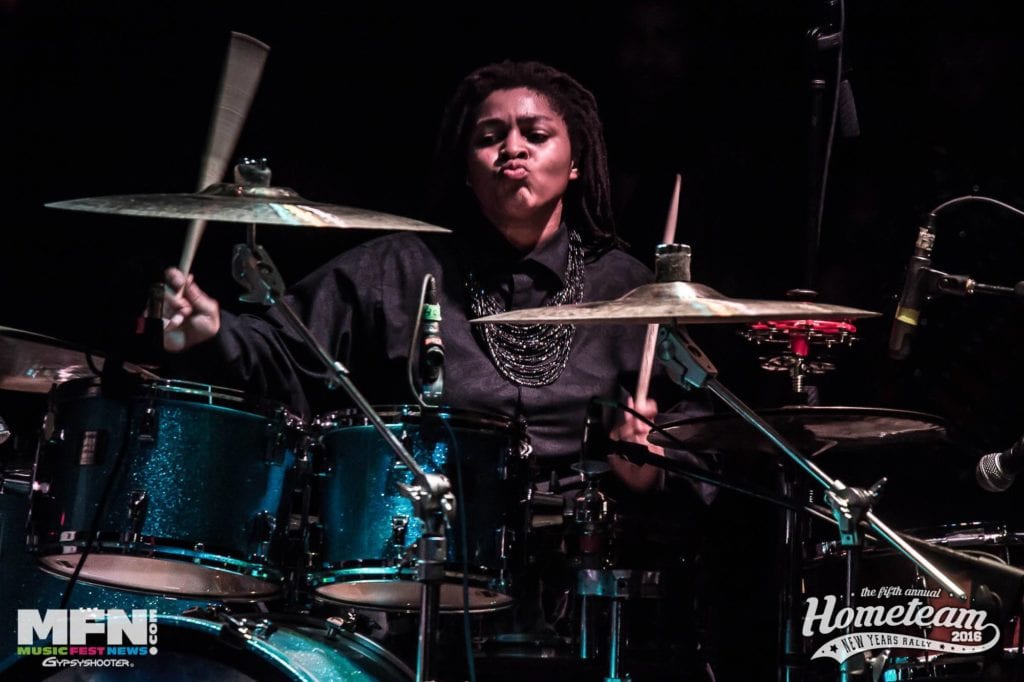
Glaspie’s time with SUGGA MAMA and Beyonce also included some eye-opening experiences in far-flung places like Nigeria, where the experience was amazing but the reception for an all-female band less so.
“First off, being African-American and going to Africa, that was a big deal to begin with. I was just out there kinda just walking around in this space, because it was just this dirt field, and they had set up this stage for us. I was just kind of walking around and this dude came up to me and he’s like, ‘Hey! How ya doin’?”
“I’m like ‘What’s up man?’ And I’m just happy to be here.”
“And he said ‘Welcome Home.’”
“And I just started bawling. I was like ‘Wow!’ But then we played the show, and (Beyonce) says, ‘Give it up for my all-female band!’ And they booed. They booed! And we were like, ‘Really? Like for real?’ That was definitely eye-opening.”
“Right after that, we were playing, and I don’t know how many people there were. Like maybe 70,000 people on an open field. Unbeknownst to us, maybe a couple of football fields away, there was a huge projector where there were another 80,000 people watching a projector. The projector went out, and all those people started to come to the field where we were. It was like mayhem. It was crazy.”
“Our tour manager yelled, ‘Yo! Get in the van now! Grab your stuff!’ He went and found some dudes with some guns and gave them money and said, ‘Stand here and guard these vans!’ Because it was like a riot. They were just coming over. It was really, really crazy. It was like the wild, wild west. There were people out there with machetes and guns. We stayed on a compound with barbed wire fences and guards with AK-47s. It was definitely a culture shock.”
India was another stop on the tour that afforded Glaspie a glimpse into a world few Westerners experience.
‘When I went to India,” she recalled, “I’d never seen poverty like that. It was just so eye-opening. Because I’m staying in this resort, and right outside there is a guy with a stick and a tarp that was his house.
When I was walking around this lady actually tried to sell me her baby. At first, I thought, man, she’s that bad off that she would sell her baby? A little while later, I thought that maybe she thought that her baby had a chance with me. I thought, man, if I could have taken the baby I would’ve. But I can’t get on the plane with a baby. Seeing that and experiencing it really, really gives you perspective. I’m thankful for everything I have, and what I don’t have I don’t need.”
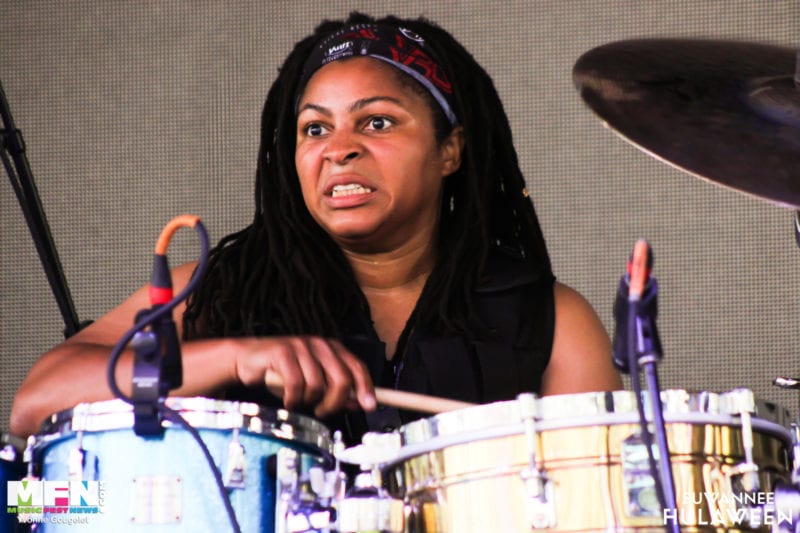
Not long after her stint with SUGGA MAMA ended, Glaspie’s career led her to New Orleans, a music mecca and international treasure trove for talent. There she went to a school of another sort – The Neville School of Funk, where Ivan Neville took her under his wing. She joined his steamroller of a funk machine Dumpstaphunk and would tour some of the country’s biggest festivals, including Bonnaroo, High Sierra Music Festival, Voodoo Music Experience, The New Orleans Jazz and Heritage Festival, and many more.
“Ivan really took me in,” she said. And those guys – Tony Hall and Nick Daniels and Ian Neville – I’m super thankful to them for taking me in. That’s the thing. I went to the Neville School of Funk. That’s kinda like how I’d explain my career. You know. Beyonce was undergrad. Dumpstaphunk was the master’s program. And then I started playing with Maceo Parker a couple of years ago, and that’s like getting my doctorate. I’m really thankful for that as well, because I’ve got through the Parliament-Funkadelic School of Funk, the James Brown School of Funk. It doesn’t get any better than that.”
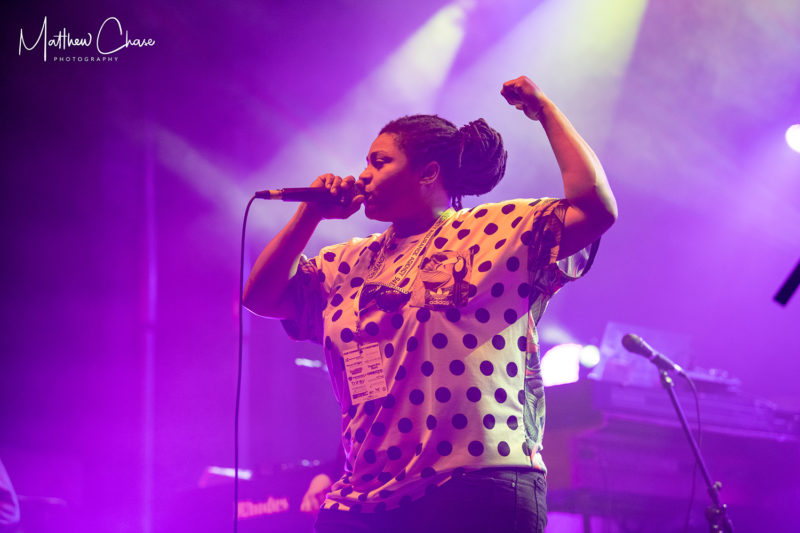
New Orleans provided Glaspie with endless opportunities for epic collaborations, and her reputation as a gifted heavy hitter grew exponentially. She’s shared the stage with some of the city’s and the jam world’s finest musicians, including Big Sam’s Funky Nation, George Porter Jr., Soulive, G Love & Special Sauce, Russell Baptiste, The North Mississippi All-Stars, Karl Denson’s Tiny Universe, and many, many more.
In 2014 she departed Dumpstaphunk to pursue her current passion, The Nth Power, the seeds of which were planted two years earlier at an impromptu, late-night Jazz Fest session. The collective set out to spread a message of love through the healing power of music. With an EP (2013’s Basic Minimum Skills Test), a studio album (2015’s Abundance), a live album (2016’s To Be Free), and a powerful new single (“Truth”) under their belts, they’ve been flooring audiences everywhere with soulful, kinetic energy bordering on a gospel revival. Also out now is the band’s homage to Bob Marley, Rebel Music, A Tribute to the Music and Message of Bob Marley (bootleg series).
“Traveling the world and seeing how people live and seeing how similar we are. We’re all the same. There’s no reason to fight. People don’t really understand that. People are like, ‘This is your point of view. And this is my point of view,’ And that’s fine. We don’t have to kill each other over a point of view. We’re not going to look at the same thing the same way. We’ve got different eyes, different experiences.
“So, that’s what we want people to understand. We want people to recognize their similarities instead of pointing out their differences. We all put on our pants the same way. You get cut, you bleed red. So do I.”
“What is this thing?” she said pointing to her body. “It’s a shell. The spirit travels in the shell. So why would I judge you because of your shell? It’s doesn’t make any sense. So that’s the basis where it all comes from. We see it, and it hurts us. We’re empaths. We feel everything. We feel people’s pain, and that comes out in the music.”
A firm believer in the power of visualization, Glaspie sees endless possibilities ahead including new music from The Nth Power, a possible solo project and maybe even a go at acting.
“If you can dream it, you can do it,” she said. “If you speak it, it will come into existence. That’s part of the whole faith process. You have to speak it to believe it and hear it to become something. It’s like an idea, it’s out there, it’s floating out in the work, and then it just manifests itself if you keep saying it and keep believing it, it’s gonna happen. No way it’s not gonna happen.”
